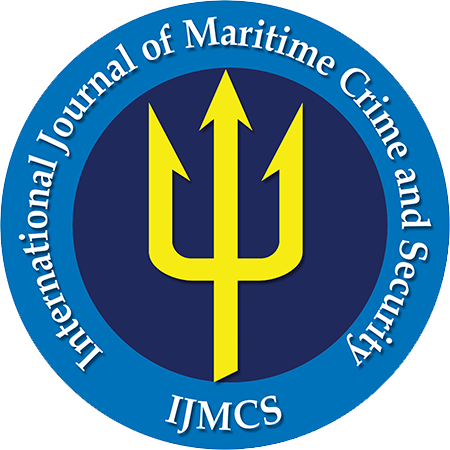Climate Change; Marine Environment; Ecological Aspect; Challenges; Bangladesh; Ballast Waste
Climate change is predicted to have an extremely destructive effect on Bangladesh. Natural disasters may take place even more frequently and be greater in magnitude. A rise in sea levels could submerge a considerable proportion of the country. The legal regulations per specific aspects of maritime law are the priority of lawyers as natural risks like rising sea levels, storm surges, or tsunami waves, the pollution of the marine environment all represent a severe threat to coastal inhabitants. Global climate change will thus not only cause environmental degradation but will drive massive social changes as innumerable people migrate from devastated areas. This might further overstretch inadequate infrastructure and governance mechanisms and will lead both to a collapse in living standards and a rise in social disorder. Thus, the article contributes to the expansion of the current regime whereby using the bay water cooling atomic energy plants prevents its use for fish farming purposes, or an oil spill on the high seas pollutes beaches that are essential for tourism within the coastal zone. Such activities destroy our natural climate and change the water level, and promote ocean acidification, ocean stratification, coral bleaching, change species; distributions and make other biological changes to the sea and littoral including the discharge of ballast wastewater which may carry alien invasive species.
Download Full Text Here
- Abul Kalam Md. Iqbal Faruk, 2019, Climate Change Impact on Biodiversity in Bangladesh retrieved from https://www.iucn.org/content/climate-change-impact-biodiversity-bangladesh visited on 12 July 2019.
- Amin, M, Ali, M, Salequzzaman, M, Identification, and impact analysis of invasive species: a case study in the Mongla sea port area of Bagerhat district of Bangladesh. 2009, Daffodil International University Journal of Science and Technology, https://www.banglajot/index/php/DIUJST/article/view4353
- Bangladesh 2006. Bangladesh National Programme of Action for Protection of the Coastal and Marine Environment from Land-Based Activities, Department of Environment, Ministry of Environment and Forests, Bangladesh, May.
- Caponera, Dante A, 2007, Principles of Water Law and Administration National and International Law, 2nd ed, p. 225.
- Copeland, Claudia, 2008, "Cruise Ship Pollution: Background, Laws and Regulations, and Key Issues" Archived 25 April 2013 at the Wayback Machine. (Order Code RL32450). Congressional Research Service (Updated 6 February 2008).
- “Ghost fishing' killing seabirds” in BBC News. 28 June 2007
- Helsinki Convention (Convention on the Protection of the Marine Environment of the Baltic Sea Area, 1992, text published in BGBl. 1994 II p. 1397) Article 3 paragraph 4.
- Horizon Scan of Emerging Issues for Global Conservation in 2019 (the tenth annual edition of this study) retrieved from https://therevelator.org/wildlife-endangered-species-2019/acceded on 12 December 2020.
- Hossain, M Maruf, Study of ballast from foreign ships in Chittagong
- https://www.researchgate.net/publication/341965485_Ballast_water_management_Bangladesh_Maritime_water_content_MMaruf_Hossain;
- Household Income and Expenditure Survey 2010 Bangladesh, 2010 – 2011. Bangladesh Bureau of Statistics https://catalog.ihsn.org/index.php/catalog/2257 . Accessed 10 May 2021.
- http://www.cites.org/eng/disc/text.shtml#XVIII accessed Nov.6, 2019.
- https://1.next.westlaw.com/Link/Document/FullText accessed Nov.6, 2019.
- https://www.imo.org/en/OurWork/Environment/Pages/BallastWaterManagement.aspx For examples of Invasive Aquatic Species (IAS), see
- https://www.imo.org/en/OurWork/Environment/Pages/AquaticInvasiveSpecies(AIS).aspx
- (https://www.imo.org/en/MediaCentre/HotTopics/Pages/Implementing-the-BWM-Convention.aspx#:~:text=The%20Ballast%20Water%20Management%20Convention%20or%20BWM%20Convention%20(full%20name,potentially%20harmful%20aquatic%20organisms%20and),
- https://www.dnv.com/maritime/ballast-water-management/frequently-asked-questions.html
- https://britanniapandi.com/wp-content/uploads/2019/07/LR_National-ballast-water-management-requirements-03-2019.pdf 15/10/2019.
- imo.org/en/About/Conventions/Pages/International-Convention-for-the-Control-and-Management-of-Ships%27-Ballast-Water-and-Sediments-(BWM).aspx
- International Convention for the Prevention of Pollution from Ships, 1973 as modified by the Protocol of 1978(MARPOL 73/78, MARPOL is short for marine pollution and 73/78 short for the years 1973 and 1978) is one of the most important international marine environmental conventions. It was developed by the International Maritime Organization in an effort to minimize pollution of the oceans and seas, including dumping, oil and air pollution. Henceforward MARPOL. 1973/78.
- Islam, M. R., (edt.), 2004, Where Lands Meets the Sea. A profile of Coastal Zone of Bangladesh (Dhaka: The University Press Limited),
- Islam, Nazrul, 2020, a professor of Geography and Environment of the University of Dhaka, interview.
- Kamal Uddin Bhuiyan and Md. Jahangir Alam, 2014, “Maritime environmental laws needed to combat marine pollution” in The Daily Star, 28 October 2014 retrieved from https://www.thedailystar.net/maritime-environmental-laws-needed-to-combat-marine-pollution-47653.
- Khan, M. S., Rahman, M. M. and Ali, M. A. 2001 (eds). Red Data Book of Vascular Plants. Bangladesh National Herbarium, Dhaka. Referenced in National Biodiversity and Action Plan for Bangladesh October 2006.
- accehttps://www.iucn.org/sites/dev/files/import/downloads/national_biodiversity_strategy_and_action_plan_for_.pdf. Accessed 10 May 2021.
- MARPOL 1973/78. Preamble to the 1973 Convention.
- MARPOL 1973/78. Annex V has been amended multiple times, changing different aspects of the original text. At last, it came into force on 2 March 2012 to generally prohibit the discharge of any garbage into the ocean, with the exception of food wastes, cargo residues, wash-water, and animal carcasses. There are further provisions describing when and how to dispose of the acceptable wastes.
- MARPOL 1973/78. Annex VI amendments according with MEPC 176(58) came into force 1 July 2010.
- Amended Regulations 12 concerns control and record keeping of Ozone Depleting Substances.
- Amended Regulation 14 concerns mandatory fuel oil change over procedures for vessels entering or leaving SECA(Sulphur Emission Controlled Areas) areas and FO sulphur limits.
- Mason, Christopher F, 2002, Biology of Freshwater Pollution 4th ed, (UK: Pearson Education Limited)
- Mizanur, M. R.,2006, A Study on Coastal Water Pollution of Bangladesh in the Bay of Bengal (2006) http://hdl.handle.net/10361/215
- Rashid, T., Hoque, S. and Akter, S. “Pollution in the Bay of Bengal: Impact on Marine Ecosystem” in Open Journal of Marine Science, 5, 55-63, (2015) retrieved from http://dx.doi.org/10.4236/ojms.2015.51006
- Society of Master Mariners Bangladesh,
- http://www.smmbd.org/ballast-water-management-convention-amendments-enter-into-force/
- Tanaka, Yoshifumi, (2012) The International Law of the Sea (Cambridge: Cambridge University Press,), pp. 279-281.
- U. S. Government Accountability 2000 (7 March 2000). "Marine Pollution: Progress Made to Reduce Marine Pollution by Cruise Ships, but Important Issues Remain" (PDF)(RCED-00–48): Archived (PDF) from the original on 6 March 2010.
- Wilson, E. O, 2000, “A Global Biodiversity Map” in Science Journal 289 (5488) (2000): 2279. PMID 11041790.



